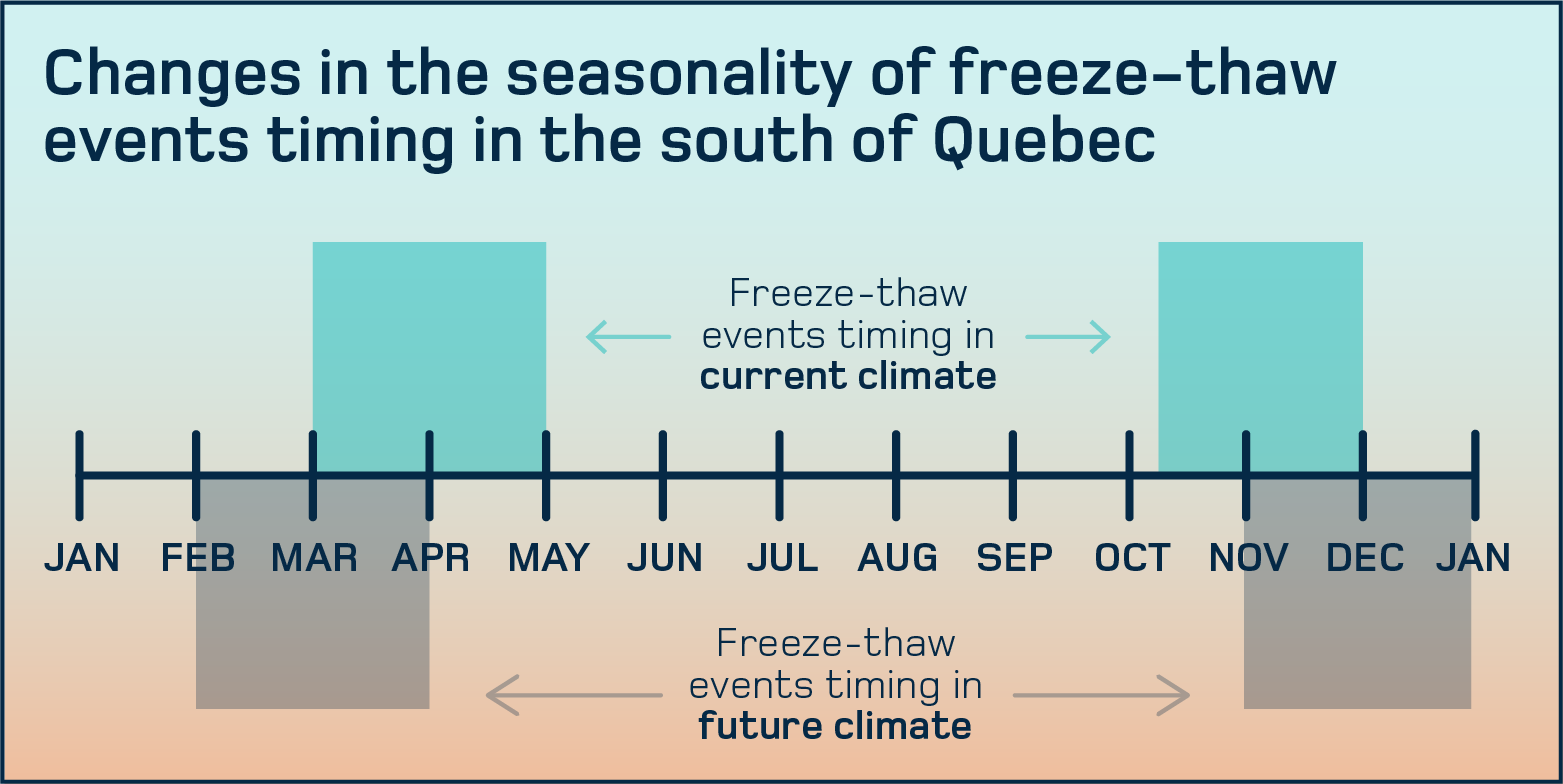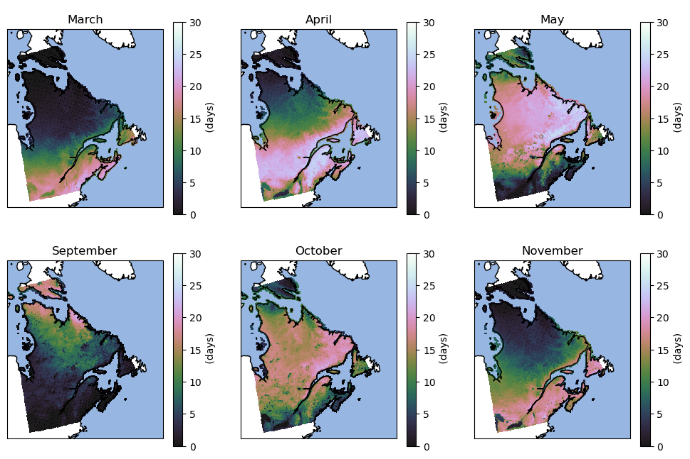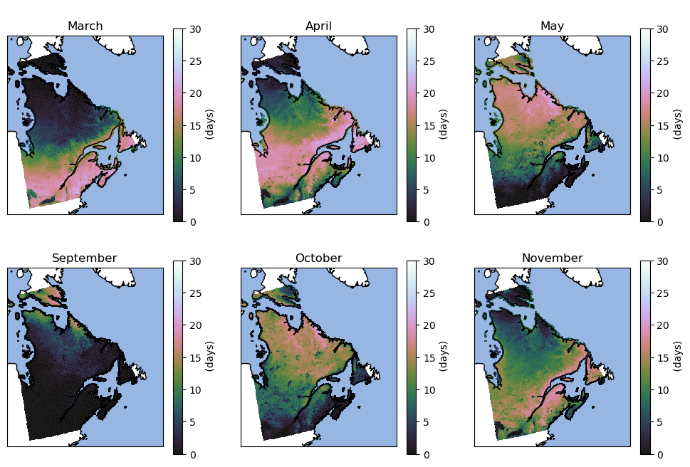Freeze-thaw events
Across Quebec, projections indicate that climate change will cause a shift in the time period during which freeze-thaw events will occur.
The increase in average temperatures can cause variations in the period during which temperatures are amenable to freeze-thaw cycles.
Changes in the seasonality of freeze-thaw events in Quebec’s regions
Based on a high emissions scenario (SSP3-7.0), climate projections indicate that the timing of freeze-thaw events will change in all regions of Quebec, occurring earlier in the spring and later in the fall. These changes will be gradual and will manifest in different ways in the south and the north of the province.
In the southern parts of the province, freeze-thaw events are currently more frequent from mid-October to early December, and from March to May. However, by 2100, projections indicate more will observed throughout December and in February.

The timing of freeze-thaw events is also likely to change in northern Quebec. While these events occurred mostly in September/October and May/June in the reference period, they will happen more often in October and May by 2100.
Reference period from 1991 to 2020

Projection for 2071 to 2100 under a high emissions scenario (SSP3-7.0)

Figure 2: Monthly total of freeze-thaw cycles in all of Quebec under a high emissions scenario (SSP3-7.0). Comparison between the 1991-2020 reference period (on the left) and the future period of 2071-2100.